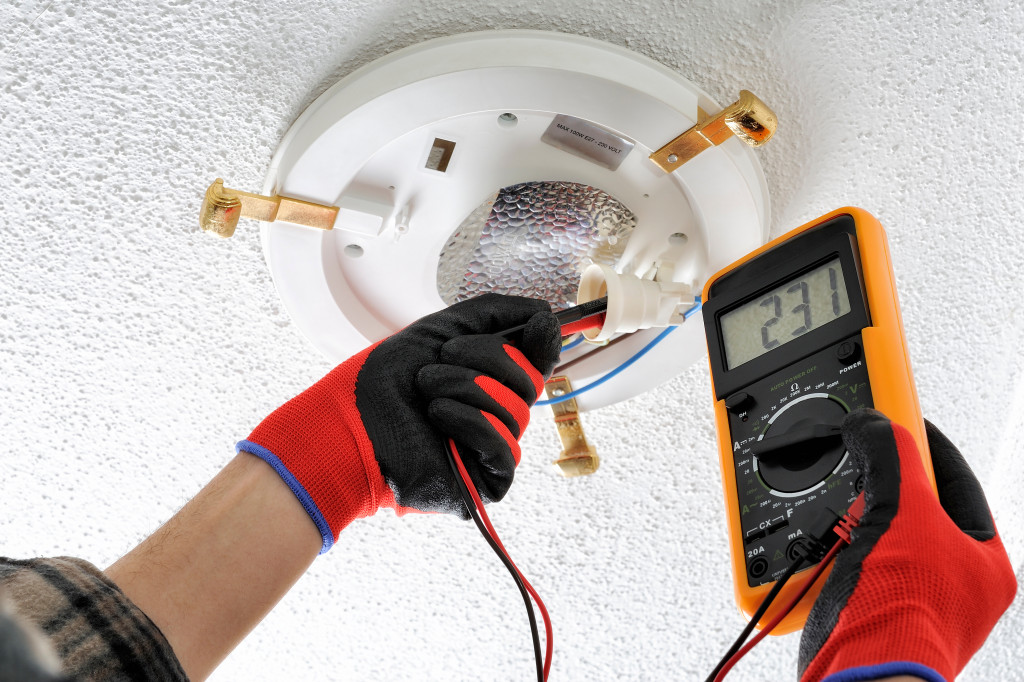Believe it or not, lighting has a significant impact on one’s productivity and concentration, especially among office workers. In fact, good lighting has a direct impact on our daily activities than we had ever imagine.
Whether in office or industrial settings, proper lighting makes a big difference in how we do things at work. Today, modern-day employees spend most of their time in the office, which can sometimes take a toll on their physical and mental health. But if they aren’t working smarter, it can negatively affect the way they do things at work. While this may seem a basic insight, many companies are not aware of the importance of proper lighting to the overall productivity of the workplace.
Appropriate lighting is the best way to make the most of employee talent—to produce greater products, provide better service, and, more importantly, drive higher revenue. To achieve this, forward-thinking companies are investing in lighting control systems, installing corrective and ambient lighting, and hiring window cleaning services to improve access to natural light.
Given the role of lighting in the modern workplace, it makes sense to understand the importance of workplace lighting on employees and the overall productivity of the company.
Prevents health issues
Both natural and artificial lighting affect employees’ health and well-being by influencing their alertness and mood. But when it comes to our sense of sight, lighting can create a bigger impact on the way we function. Depending on the level of illuminance, lighting can either be uncomfortable or comfortable to the eyes.
Visual discomfort and problems may occur if the employee lacks access to good lighting, making it difficult to perform their jobs, which can affect their behavior and performance negatively. Other lighting aspects that can lead to visual discomfort include flicker, glare, shadows, veiling reflections, excessive and insufficient lighting. If an employee continues to depend on poor office lighting, they are likely to suffer from eye strain, dry eyes, headache, and migraine.
Poor lighting also affects the body’s circadian rhythm, a natural process that regulates the sleep-wake cycle. Our bodies have an internal clock triggered by natural light, which we respond to for the entire day. In other words, our bodies are naturally attuned to sunlight. So how does workplace lighting affect our circadian rhythm?
If office environments can replicate this level of lighting during work hours and provide personalized lighting for circadian health, employees are likely to feel more energized and motivated. In turn, it will affect their sleep quality, resulting in longer, restful nights and productive workdays. Otherwise, employees are prone to fatigue and drowsiness if they fail to get the required lighting.
Saves energy

Proper workplace lighting is not only imperative for employee well-being but also for energy-saving purposes. Electricity takes the largest share of a business’s overhead costs, which account for 60% of the company budget.
Often, employers think that investing in good lighting fixtures is just a waste of money and a form of superfluous luxury. Today, you’ll find a variety of lighting fixtures with energy-saving features, perfect for office use. One example are LED office lamps, which are significantly more energy-efficient than other traditional fluorescent lamps.
Office lamps available in the market now come with sensor technology and a light management system. These energy-saving features work for daylight detection and human presence. The lamp can detect the absence or presence of a person, and will automatically turn off once the sensor detects the office is empty.
Motion sensor light switches are an energy-saving technique while providing better lighting for the employees. Most establishments use this to conserve electricity on rooms, hallways, and aisles that occupants don’t use frequently. Since daylight is the primary lighting source in an office environment, light fixtures with daylight detection will turn off immediately once they detect sufficient daylight.
Improves productivity
Blue-enriched light bulbs make a perfect alternative to offices with no access to natural light. Studies reveal that blue-enriched light bulbs can increase work performance by enhancing alertness, vitality, and mental acuity while reducing sleepiness and fatigue.
Blue light also lowers our sleep hormone called melatonin. A person who has a low level of melatonin is likely to feel more alert, just like drinking a cup of coffee. Lights with cooler hues have various brainpower benefits that help employees feel excited and invigorated to share ideas, especially during meetings. Meanwhile, middle tones are perfect for conference rooms to establish a sense of calmness and comfort. They are also ideal in intimate settings to create a more relaxing atmosphere and promote trust.
Quality workplace lighting is a critical component of employee well-being. Every employee should have access to a productive and comfortable workspace, which can be possible by getting the workplace lighting right. After all, the company’s success depends largely on employees, so it’s important to invest in things that will keep them satisfied and motivated.




